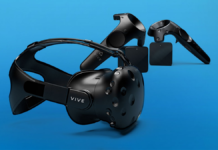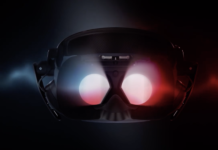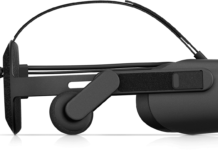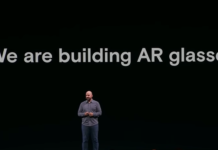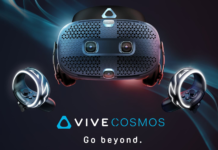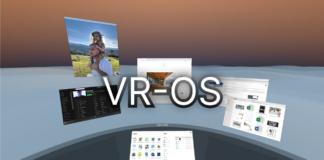The HTC Vive Cosmos, the successor to the HTC Vive and Vive Pro, is launching today for $700. Just like all of the HTC Vive PC headsets, this headset will be able to use the wireless adapter from Vive. But first, before you use this adapter, you will need a few extra pieces of hardware that will enable this amazing feature. All of the new hardware will be included in the Compatibility Pack from Vive.
Even if you already have the Vive Wireless hardware before the Cosmos, you won’t be able to use the wireless adapter until you receive your Compatibility Pack. Included in the pack is a new batter of 21W, a connection cable for the Cosmos, and the attachable headset pad. The pack doesn’t include the adapter itself, as that is still going to set you back an extra $300.

The original wireless pack comes with a battery that is capable of powering the headset for a nice 2.5 hours, but the Cosmos is slightly different. Because the headset works with inside-out tracking, it requires a battery with much more powered inside of it. It doesn’t last longer, but it does provide more power so the headset can operate while performing all of the computing and tracking all within the HMD.
HTC has also let consumers know that all of their information that is gathered with the headsets cameras are staying on board. That means that it isn’t sending any data with images out of the headset (thanks Facebook), so battery will be greatly improved with this headset when it goes wireless. One of the reasons that your Oculus Quest is dying so quickly is because the headset is constantly storing and sending out the camera data trying to recognize the play areas and gather information about that. When your Vive Cosmos is wireless, it won’t be doing anything of the sort.

It is important to note that all wireless adapters from Vive at the end of the month will be featuring the 21W battery, not the classic 10050mah battery that we have grown tired of in other Vive headsets. In an official blog post from the company, they say that “Due to the new inside-out tracking on Cosmos and other features, the headset draws slightly more power than the current Vive Wireless Adapter battery can support, so this battery is needed to power this headset wirelessly. In addition, Vive Cosmos processes all the camera tracking data solely in the headset and never sends the visual tracking data to the PC. While this means we are securing user privacy in their play space, this approach results in a higher headset power consumption.”
The Vive Cosmos is out today, and although we haven’t gotten our hands on the hardware yet, we are mindful of the reviews being put out there. Some are saying the tracking is lackluster when inside of a room that isn’t lit like a studio, some say the controller tracking is bad all around, and others are saying that they are experiencing often black-outs with the headset. We wait to hold our official judgements until we can do our own deep dive with the hardware, but things aren’t looking too bright for HTC Vive right now.
We hope to see some software updates to fix the alleged bug problems, as Vive is usually quick to fix the consumers problems. The Vive Cosmos was going to have a tough time selling right now anyway, and this isn’t going to help. For more VR news and updates, make sure to check back at VRGear.com.




